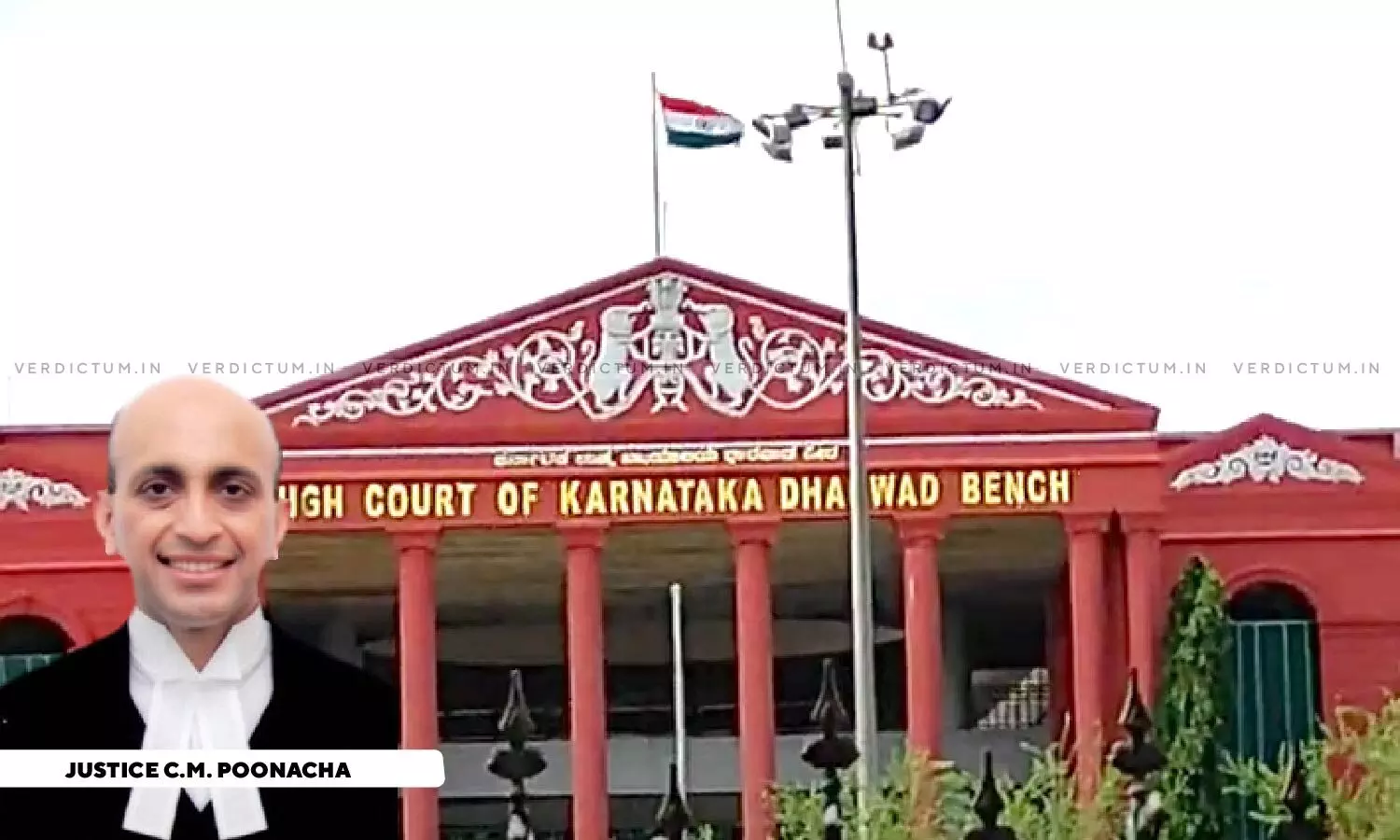
Right Of Pre-Emption Arises Only From A Valid And Complete Sale: Karnataka HC Cites Mulla’s Mohammadan Law
 |
|The Karnataka High Court cited Clause/Note 232 of Mulla’s Mohammadan Law specifically stipulating that the right of pre-emption arise only from a valid and complete sale.
The Dharwad Bench was dealing with a regular second appeal filed under Section 100 of the Civil Procedure Code (CPC) challenging the judgment of the Fast Track Court and the judgment of the Civil Judge in a case where the suit for declaration of the preferential right and execution of Sale Deed was dismissed by the Trial Court and decreed by the First Appellate Court.
A Single Bench of Justice C.M. Poonacha observed, “It is forthcoming from the relevant legal provisions that Clause/Note 232 of Mulla’s Mahomedan Law specifically stipulates that the right of pre-emption arises only from a valid and complete sale. Clause/Note 236 of Mulla’s Mahomedan Law requires a formal demand to be made either in the presence of the buyer or seller or on the premises which the subject sale and in the presence of two witnesses.”
Advocate B.S. Kamate appeared for the appellants/defendants while Advocate Dinesh M. Kulkarni appeared for the respondents/plaintiffs.
Facts of the Case -
As per the case of the plaintiffs i.e., respondents, they were the sons of Fakruddin Mulla and the defendants i.e., appellants were the sons of Shileman Mulla and both were brothers. The suit properties belonged to the father of Fakruddin and Shileman. After their father’s death, the same was being enjoyed jointly by them and after their death, the plaintiffs and defendants were in actual possession and enjoyment of the same. As Fakruddin became old and was unable to manage the suit properties, the names of plaintiffs were entered in the revenue records of the suit properties. As also, the names of defendants were entered in the revenue records. Though their names were entered in the records of rights separately, there was no partition of the suit properties between the plaintiffs and defendants.
The plaintiffs’ case was that the financial position of defendants was not sound and hence, they were intending to sell their share in the properties. The parties belonged to the Muslim community and hence, the plaintiffs submitted that they had preferential right to purchase the share of defendants. The plaintiffs approached the defendants and expressed their willingness to purchase the share but the same was denied. Hence, a legal notice was sent to defendants but they did not reply to the same. Behind the back of the plaintiffs, the defendants without any intimation, executed a sale deed in favour of another conveying their share for a total consideration of Rs. 68,000/-. Therefore, the plaintiffs filed the suit but the Trial Court dismissed the same. Being aggrieved, they filed an appeal and the First Appellate Court allowed the same. Resultantly, the defendants were before the High Court.
The High Court in view of the facts and circumstances of the case said, “It is forthcoming that the Trial Court, recording a finding that there is no plea that the plaintiffs expressed their willingness to purchase the property and hence, the ingredients of Clause/Note 236 Mulla’s Mahomedan Law have not been complied with dismissed the suit.”
The Court observed that although the demand has been made after the sale, in compliance of Clause/Note 232, the evidence adduced by the plaintiffs does not satisfy the criteria as stipulated under Clause/Note 236 of Mulla’s Mohammadan Law.
The substantial question of law framed by the Court was- Whether the plaintiffs have complied with the provisions of Section 236 of Mohammadan Law for obtaining the relief fared on pre-emption?
“It is clear from the aforementioned that while PW.1 has stated that plaintiff has enquired with defendant Nos.1 and 2 after the sale is made, he has not stated that PWs.2 and 3 have also accompanied the plaintiff. PW.2 has not stated that he has accompanied the plaintiffs to meet the defendants after the sale. In fact in the cross examination, he has specifically stated that he has not accompanied the plaintiffs to meet the defendants after the sale. PW.3 has specifically stated regarding accompanying the plaintiffs and along with PW.2 to meet defendant Nos.1 and 2 after the sale”, it also noted.
Accordingly, the High Court allowed the appeal, set aside the judgment of Fast Track Court, affirmed that of Civil Judge, and answered the substantial question of law in negative.
Cause Title- Jamaluddin Shileman Mulla & Ors. v. Babasaheb Fakruddin Mulla & Anr.